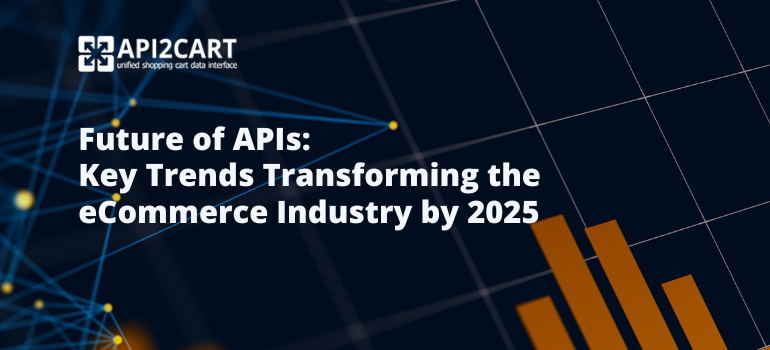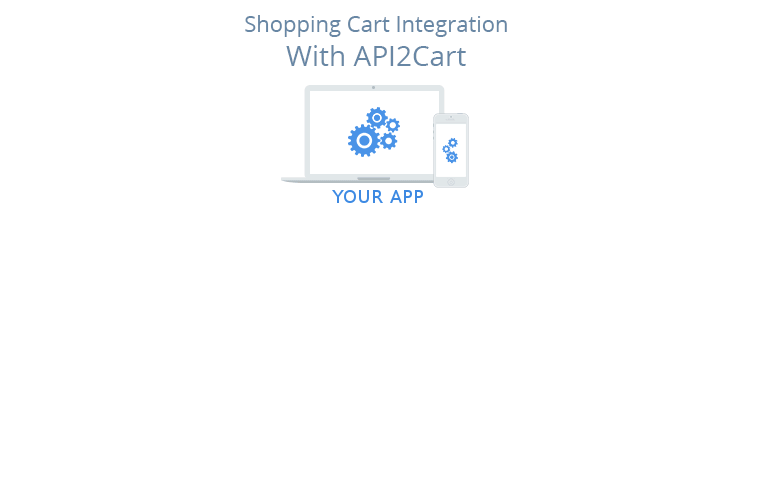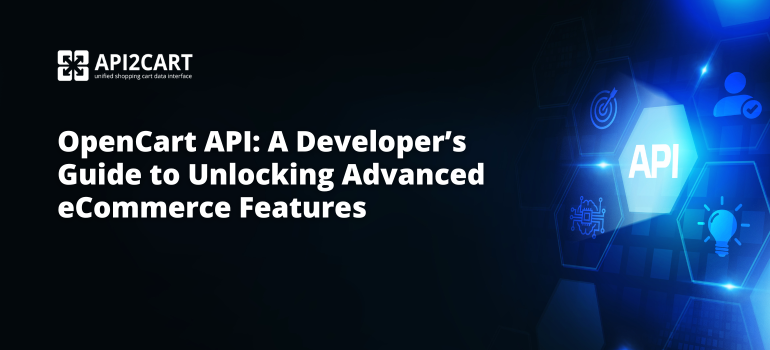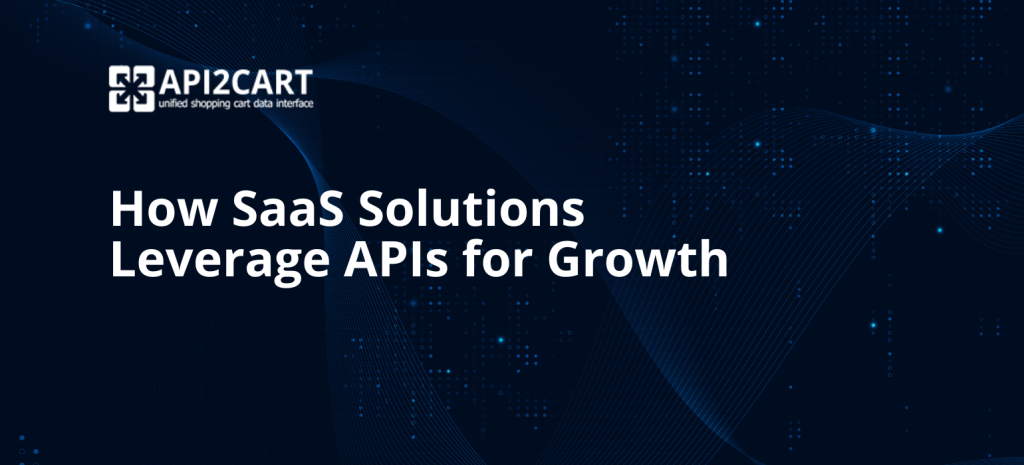
The face of eCommerce is being changed by APIs and the result is innovation and new operational efficiency. With more than 70% of developers expecting to increase API usage this year and beyond, we can see the future of APIs will continue to shape eCommerce strategies. APIs help eCommerce businesses be automated with tasks like inventory updates, order tracking and payment processing etc. It also helps businesses to use the latest day technology like AI based personalization, real time data syncing, etc. As customer expectations continue to rise, APIs are no longer a convenience, they are a game changer.
In this article we will talk about the future of APIs in eCommerce industry and why they are crucial for success.
APIs in eCommerce and Their Growing Importance
Integration, innovation, and scaling of eCommerce are made possible by APIs. They are crucial to the modern online business, and are what connects one system, application, or service to another. Here's how they shape the future of the industry:
Seamless Integration
They make exchanging data between platforms, payment gateways, stock systems and shipping providers very easy. Through them order tracking, inventory updates, payment confirmations, are automatic and errors are eliminated, time is saved. With successful companies often having multiple sales channels (such as a website, brick and mortar location and an online marketplace, like eBay), an API removes this hassle of getting the inventory level right across these sales channels, resulting in increased efficiency and consumer confidence.
Fostering Innovation
APIs make it easier for businesses to start adopting new tech such as AI powered recommendations, AR, or voice commerce, just to name a few. By letting companies integrate your shopping experience into what they’re already using, you’re creating unique, radical shopping experiences that customers love. Additionally you can also leverage new tools through APIs and stay up to date with market trends.
Omnichannel and Scalability
API powered data allows for consistency in data across websites, apps and physical stores which leads to omnichannel strategies. In addition, APIs also allow businesses to scale easily as new tools or platform keep coming on board.
eCommerce is the future and there isn't much of a way back when it comes to APIs. They are used by businesses to remain agile, adopt new technology and to satisfy the rising demand for a seamless shopping experience. Today, when the eCommerce business is competitive and continuously evolving APIs are not just set of tools; they are the must have.

Headless Commerce and API First Architecture: Today’s Rise
The emergence of headless commerce is driving a growing need for flexible and API first solutions. This approach separates the frontend (the user facing interface) and the backend (the operational engine) allowing businesses to provide highly personalized and seamless shopping experiences across various platforms and devices.
In the conventional eCommerce architectures, the frontend and backend are well-coupled, and this is not very flexible. Headless commerce eliminates this constraint because it uses APIs to connect the two. These APIs make it possible to innovate on the frontend without disturbing the backend. This decoupled architecture is especially useful for engaging customers across various touchpoints, including web sites, mobile apps, voice assistants, and the upcoming AR.
Why API-First Architecture Is Essential
Headless commerce relies on an API-first architecture, where APIs form the core of the system. This design ensures modularity, scalability, and ease of integration. Businesses can adopt new technologies or expand into new channels without overhauling their existing systems.API first solutions also means that new features can be deployed rapidly, keeping businesses competitive in a rapidly moving market.
API Integration with AI and Machine Learning

With AI becoming more and more advanced, these AI-powered APIs are now revolutionizing how AI transforms eCommerce with features like personalization, dynamic pricing, and predictive analytics. APIs enable businesses to use the machine learning algorithms that eCommerce platforms apply.
Personalization at Scale
AI powers the APIs that analyze customer behavior, preferences, and purchase history to recommend and offer products based on these insights in order to enhance customer experience. One example is a recommendation engine that uses APIs. It helps increase engagement and conversion rates. Also, it guides customers to find products that match their personal taste.
Competitiveness Through Dynamic Pricing
APIs can use AI algorithms to implement dynamic pricing. Pricing can change based on demand, competitor pricing, and customer behavior. Then, the system adjusts the price for each customer individually. It’s why businesses are both competitive and profitable at the same time.
Smarter Decisions with Predictive Analytics
AI APIs manage large amounts of data to predict trends, inventory needs, and customer demand. First, these APIs inform businesses which products are most likely to run out of stock. Also, they show when items might run low. This helps businesses avoid waste and keep inventory levels optimal.
With APIs, eCommerce solutions can provide smarter, more responsive tools that leverage power of AI to implement easy integration. This improves business operational efficiency. Also, it enhances customer experience, which is a key factor for success in the competitive digital world.
Webhooks and Event Driven APIs: The Shift To Real Time Data
Real time data is at the heart of how webhooks and event driven APIs are changing eCommerce and how business works. These tools support real time communications between systems, which implies that when an event happens, the associated critical data refreshes instantly, not periodically.
Webhooks: Immediate Notifications
A webhook is a way to notify other system in real time when something is happening in other system. Developers can use webhooks in eCommerce for different purposes. For example, webhooks can pass inventory information directly to inventory systems after a purchase. Also, they can send data to shipping providers when an order is ready to ship. Unlike traditional APIs where systems poll for updates, webhooks allow you to push automatically notifications with lower latency and higher efficiency.
Event-Driven APIs: Reactive Architecture
The event driven API is a way to build systems that respond to events on a network in a dynamic way. These APIs help eCommerce platforms handle complicated workflows. They keep track of inventory in different warehouses. Also, these APIs notify customers of order status changes in real time. With such an architecture, the data will never be out of sync between different touchpoints.
The Benefits for eCommerce
Faster Response Times: They enable businesses to become more operational efficient and more satisfied in serving their customers real time.
Enhanced Scalability: As the business grows, event driven architectures have worked well to handle large amounts of data with minimal delay.
Improved Customer Experience: By providing real time updates of orders, inventory or price, the shopping journey is becoming smoother and more transparent.
Webhooks and event driven APIs are the must have addition in eCommerce due to eCommerce demands of speed and precision. In a fast moving digital world, systems need to keep data up to date to meet customers’ expectations.
Unified APIs for Multi Platform Integrations
In today’s eCommerce landscape, businesses use several touchpoints to communicate with the target audience. And that’s where eCommerce software such as inventory management software, shipping software, multi channel system, etc. must integrate as much as possible to eCommerce platforms and marketplaces. API2Cart is one of the unified API solutions that are becoming more essential to manage various integrations effectively and efficiently.
API2Cart is an API integration solution that assists eCommerce software or apps in connecting with 60+ shopping platforms and marketplaces at once. Using one API allows software vendors to access information from Shopify, Magento, WooCommerce, and other platforms. It saves a lot of development time and money. Also, it ensures that the system always functions in a similar manner.

With 100+ API methods, API2Cart allows to get, add, update, delete and sync store data such as orders, products, customers, shipments and other. Also, the service supports scalability. It allows eCommerce software providers to enter new markets or add platforms easily. They don’t need to build integrations with each platform individually.
Using unified APIs eCommerce tools can streamline their workflows, improve operational efficiency and have a consistent presence across multiple sales channels. This is what API2Cart allows eCommerce software to concentrate on growth and customer satisfaction, instead of getting stuck in technical complexities.
The Power of APIs to Automate and Operational Efficiencies
The future of APIs in eCommerce is about automation and streamlining in different processes to achieve its efficiency. Manual intervention is painful, error is reduced, the businesses are freed up for strategic growth. The APIs are the bridges between the systems.
Streamlining Core Operations
APIs now automate most of the important tasks like inventory management, order processing, and payment confirmation. For example, you can use an API to update stock levels in real time across several platforms. This helps prevent overselling when a product has already been sold. Payment APIs also automatically confirm transactions, so delays and order workflows run smoothly.
Supply Chain Efficiency Improvement
The supply chain can communicate via APIs with eCommerce platforms, shipping providers, and logistics systems, as well as warehouses. API integrations helps to automate order fulfillment, track real time shipments and track real time delivery updates and make it transparent and customer happy.
Saving Time and Reducing the Human Error
APIs help you automate processes that would otherwise have errors such as incorrect data entry, or processes that are too long. The APIs sync all customer details, order information, and delivery addresses correctly across systems to minimize the costs of errors.
Efficient Productivity and Scalability
APIs makes it easy for businesses to scale up or down without any additional resource using new tools or platforms. It frees up staff from mundane work. Also, it allows them to focus on tasks that provide value to customer interaction and strategy development.
Now eCommerce businesses can save cost, increase operational efficiency, and have a great customer experience by using APIs for automation. APIs are no longer a convenience, they’re a must have for modern eCommerce success.
Conclusion: The Future of APIs in eCommerce
The eCommerce industry is undergoing a transformation with innovation, efficiency, and scalability at play with APIs. Through seamless integration, businesses can achieve real-time data synchronization. Using API power, such as AI and machine learning, they can deliver personalized, dynamic, and predictive experiences.
APIs let you run consistent customer journeys across platforms and marketplaces, and business growth from automation and scalability. Because they contribute to agility and responsiveness that help businesses stay competitive in the fast-changing digital industry, they are indispensable.
In the future, they will be one of the key reasons of success for businesses to adapt, innovate, and deliver unparalleled value to customers.



